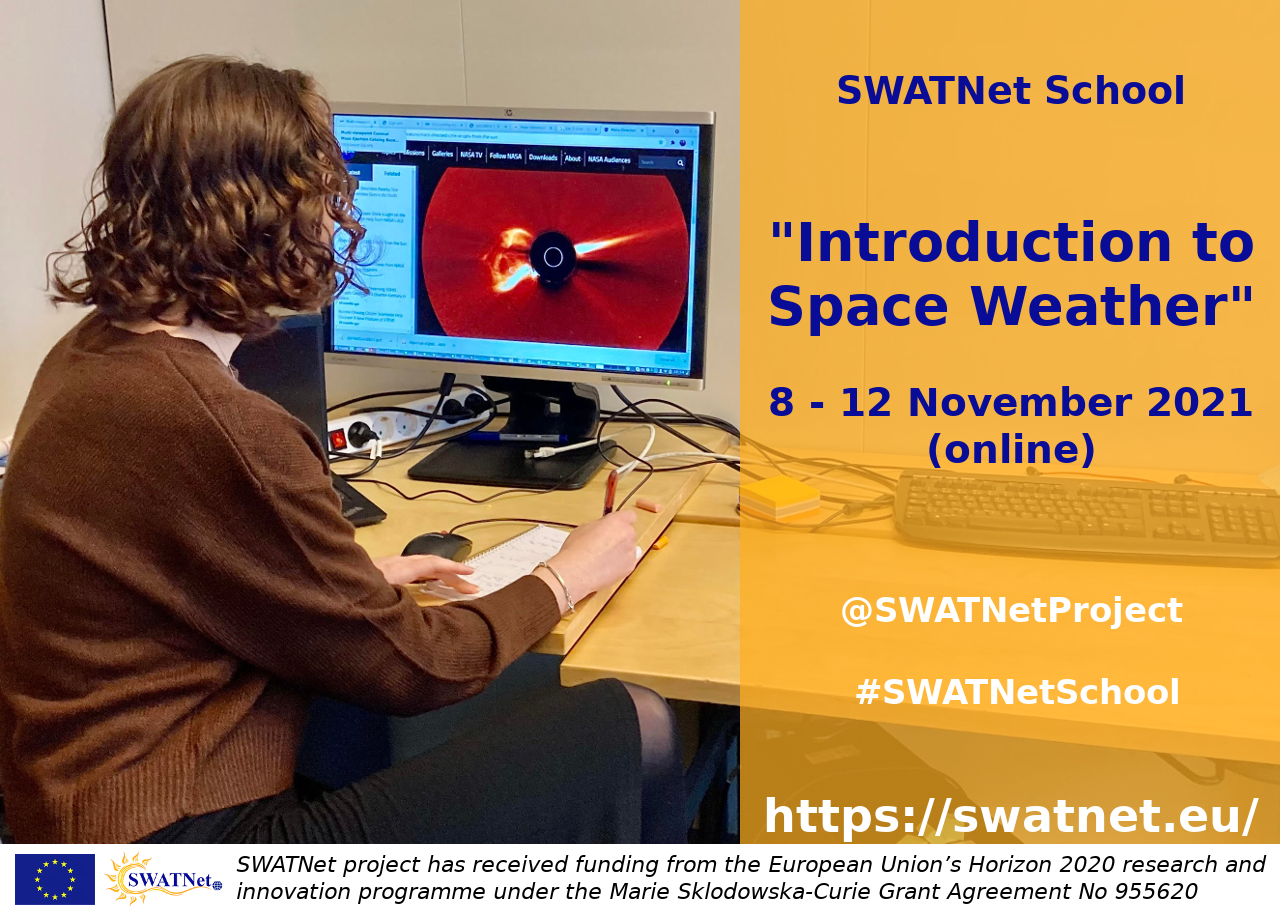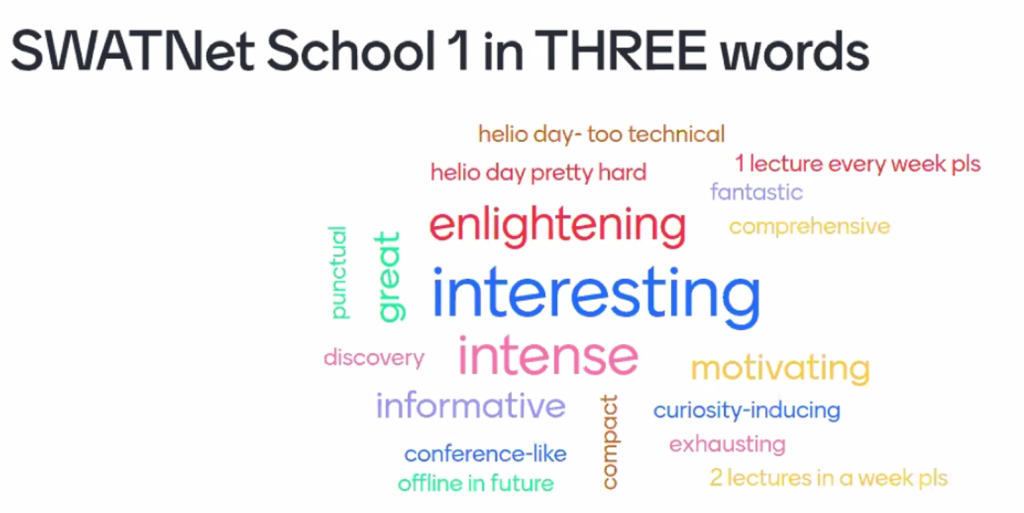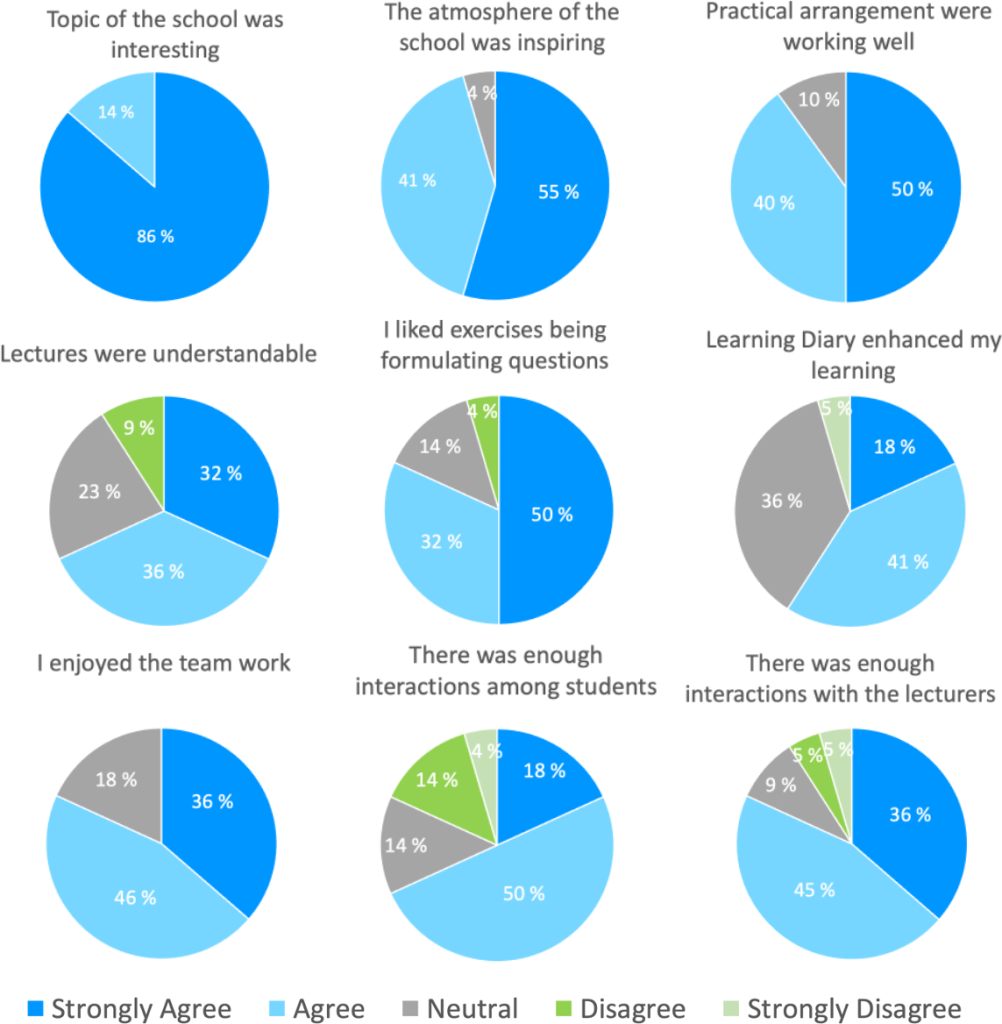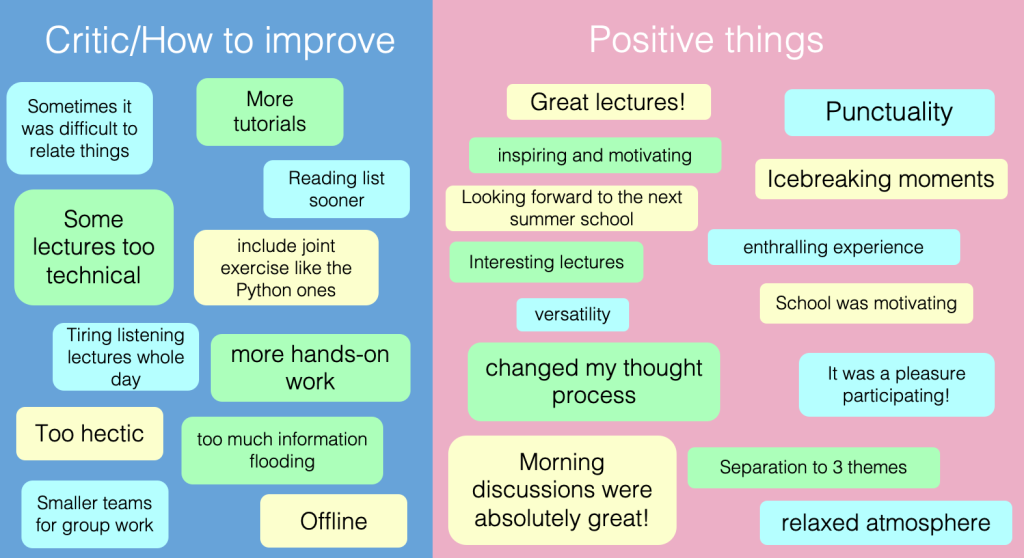
School 1: Introduction to space weather and forecasting
The key scientific aim of SWATNet is to provide significant new insight on physical understanding of key agents of space weather on Earth.
Space weather is a wide topic that encompasses complicated processes occurring from Sun to Earth over time scales from seconds/minutes to decades. Different models and observations are needed for different domains and their coupling is challenging.
To educate students on different aspects of space weather, SWATNet organized its first training school on November 8-12, 2021.
FORMAT
The school was organized fully online. All 12 SWATNet ESRs and 21 other students participated. Most were fresh PhD students with variable previous knowledge of space physics and space weather.
During the three first days of the school SWATNet supervisors and a few other experts of the field gave lectures to introduce participants to general concepts of space weather and related phenomena. Two last days were dedicated to group work and presentations.
The lecture days were divided into three themes following SWATNet’s scientific work packages: 1) Solar-Day, 2) Heliospheric (HELIO)-Day and 3) Artificial Intelligence (AI)-Day.
We also focused on enhancing student’s question asking behaviour and communication skills, as they are highly valuable both in academic and non-academic careers.
All mornings started with icebreaker activities hosted by the SWATNet project manager Dr Anastasiya Boiko (VaBo Consult). We learned where each participant would like to travel if offered a free round ticket (Iceland was the most popular destination!), invented innovative uses for plastic bags, and tried to identify geological features between Mars, Moon and Earth.
LEARNING DIARY
Each student was given a Learning Diary before the school started. It was targeted as a useful tool for enhancing deep learning and self-reflection, and to help to assess and organize scientific information received during the lectures. The Diary was not rated, but was obligatory for those students who wished to receive a certificate and study credits.
The first part of the Learning Diary consisted of pre-assignment questions. The second part was targeted for contemplating things that were clear, confusing and most interestings, as well as identifying the most important things for one’s own work and those topics where one would like to know more. The last part was a brief reflection about the school experience.
EXCERCISES AND GROUP WORK
For the AI-Day straightforward Python Notebook exercises were prepared by the lecturers. Otherwise, instead of normal exercises where students answer a set of questions we used a reversed approach where students formulated questions for the lecturers in small teams. So after each day, we had 35 questions from the students!
The questions were grouped under similar topics and discussed in the morning session the next day with the lecturers of the previous day. These were very nice sessions and allowed venturing deeper in those concepts and things that were left unclear or had raised more questions.
During the group work students wrote outreach type text on given topics that they presented on Friday (Day 5). The motivation was to practice writing material for the general public and test learning of some concepts during the school. The outputs will be further worked on during the SWATNet upcoming workshop target for science communication and they will be later used at the SWATNet webpage for educational purposes.
FEEDBACK
During the last icebreaker on Friday morning Anastasiya asked students to type in the Mentimeter app how they felt about the school to receive their immediate feedback. The answers can be read below, in a screenshot.

We also asked students to fill an evaluation survey with both closed and open-ended questions to get more elaborated answers on how they rated the training and to take their thoughts into account when organising future SWATnet events.


According to students’ evaluation, the first school of SWATNet was very well received. Topics were found interesting, motivating and inspiring and we were happy to hear that the atmosphere of the school was relaxing, approachable and curiosity-inducing.
Despite being online, most students found that there was enough interactions. Students also appreciated punctuality of lectures and other activities, icebreaking moments and morning discussion sessions.
Students gave plenty of positive feedback on hands-on exercises during the AI-Day. Python Notebooks are a very nice way to engage students and we will definitely explore possibilities to use them in our future training activities.
Learning Diary divided the opinions, but the majority found it useful for being more productive, summarising the things and supporting the learning process. Most students also liked exercises being formulating questions to the lectures.
There is still room for improvement. Some lectures were considered too technical and/or fast-paced. A week-long online school was also quite an exhausting experience and team/group work was not always smooth. It can be difficult to initiate a discussion remotely with people you do not know before and it could be a good idea that organizers would circle quickly different teams and help to get things started if needed.
This was the very first experience in organising such training within the SWATNet project and we positioned this school as a kind of trial to test things and see what works and what can be improved in future. Online format of such training was a separate challenge for technical and social aspects, however, speaking on behalf of the Consortium and based on students’ feedback, we managed to overcome the challenges.
We hope that our next school will be face to face, but we will try to arrange some remote participating options as well to make SWATNet training equally accessible to all participants
